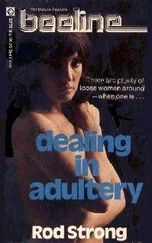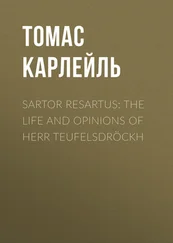Vladimir Nabokov - Strong opinions
Здесь есть возможность читать онлайн «Vladimir Nabokov - Strong opinions» весь текст электронной книги совершенно бесплатно (целиком полную версию без сокращений). В некоторых случаях можно слушать аудио, скачать через торрент в формате fb2 и присутствует краткое содержание. Город: New York, Год выпуска: 1990, Издательство: First Vintage International Edition, Жанр: Классическая проза, на английском языке. Описание произведения, (предисловие) а так же отзывы посетителей доступны на портале библиотеки ЛибКат.
- Название:Strong opinions
- Автор:
- Издательство:First Vintage International Edition
- Жанр:
- Год:1990
- Город:New York
- ISBN:нет данных
- Рейтинг книги:4 / 5. Голосов: 1
-
Избранное:Добавить в избранное
- Отзывы:
-
Ваша оценка:
- 80
- 1
- 2
- 3
- 4
- 5
Strong opinions: краткое содержание, описание и аннотация
Предлагаем к чтению аннотацию, описание, краткое содержание или предисловие (зависит от того, что написал сам автор книги «Strong opinions»). Если вы не нашли необходимую информацию о книге — напишите в комментариях, мы постараемся отыскать её.
Strong opinions — читать онлайн бесплатно полную книгу (весь текст) целиком
Ниже представлен текст книги, разбитый по страницам. Система сохранения места последней прочитанной страницы, позволяет с удобством читать онлайн бесплатно книгу «Strong opinions», без необходимости каждый раз заново искать на чём Вы остановились. Поставьте закладку, и сможете в любой момент перейти на страницу, на которой закончили чтение.
Интервал:
Закладка:
Well, all I know is that among Russian readers of today readers, I mean, who represent that country's wonderful underground intelligentsia and who manage to obtain and distribute works of dissident authors — Dr. Zhivago is not prized as universally and unquestioningly as it is, or at least was, by Americans. When the novel appeared in America, her leftwing idealists were delighted to discover in it a proof that «a great book» could be produced after all under the Soviet rule. It was for them the triumph of Leninism. They were comforted by the fact that for better or worse its author remained on the side of angelic Old Bolsheviks and that nothing in his book even remotely smacked of the true exile's indomitable contempt for the beastly regime engendered by Lenin.
Let us now turn
(The fragment stops here)
LETTERS TO EDITORS
Playboy (1961)
2 The London Times (1962)
3 Encounter (1966)
4 To Sunday Times (1967)
5 Encounter (1967)
6 The Neu Statesman (1967)
7 Esquire (1969)
8 The New York Times (1969)
9 Time (1971)
10 The New York Times Book Review (1971)
11 The New York Times Book Review (1972)
TO THE EDITOR OF PLAYBOY
published July, 1961
The amusing memoir by Maurice Girodias {Pornologist on Olympus, Playboy, April) contains a number of inaccuracies. My correspondence with Mr. Girodias, and with my literary agent about Mr. Girodias, will soon be published in an appendix to a full account of Lolita's tribulations, and will demonstrate what caused the «deterioration» ot our relations and reveal which of us was «so absorbed by the financial aspect of the nymphet phenomenon» as to be «blinded to other realities». Here I shall limit myself to the discussion of only one of Mr. Girodias' delusions. I wish to refute Mr. Girodias' bizarre charge that I was aware of his presence at the Gallimard cocktail party in October, 1959. Since I had never met the man, and was not familiar with his face, I could hardly have «identified» him as he «slowly progressed toward» me. I am extremely distrait (as Humbert Humbert would have put it in his affected manner) and am liahle not to make out mumbled presentations, especially in the hubbub and crush of that kind of affair. One can know obscure mythological or historical figures by their atrnbutes and emblems, and had Mr. Girodias appeared in a punning charade, carrying a plate with an author's head, I might have recognized him. But he came plateless, and, while apologizing for my abstraction, I must affirm here that I did not talk to Mr. Girodias about his brother's translation, or anything else, and that I remained completely and blissfuly ignorant of having exchanged a polite grin with the Olympian Pornologist. Incidentally, in the course of describing our fictitious colloquy, Mr. Girodias compares my physical motions to those of a dolphin. This, I admit, is nicely observed. I do, alas, resemble a dolphin — and can do nothing about it, except remark, in conclusion, lhai Mr. Girodias speaks of those gentle cetaceans with the frightening appetite of an elasmobranch fish.
Nice. France
2- TO THE EDITOR OF THE LONDON TIMES
published May 30, 1962
I find my name listed in the program of the Edinburgh International Festival among those of writers invited to take part in its Writers' Conference. In the same list I find several writers whom I respect but also some others — such as Ilya Ehrenburg, Bertrand Russell, and J. P. Sartre — with whom I would not consent to participate in any festival or conference whatsoever. Needless to say that I am supremely indifferent to the «problems of a writer and the future of the novel» that are to be discussed at the conference.
I would have preferred to bring this to the notice of the Festival Committee in a more private way had I received an invitation to the Conference before my name appeared on its program.
3 TO THE EDITOR OF ENCOUNTER
published April, 1966
I am glad that Mr. Fussell has nothing against my notes on prosody provided they remain attached to a work of repelling length and limited appeal. I am amused by his objecting to them when published in the form of a separate, easily available little volume. In my turn, I object to his assuming that my dislike for the French pseudoclassical style as borrowed and reworked by English poets is based «on the eighteenth century's performance in tetrametric verse». Before dragging in Pope's pentameter and Sterne's prose in redemption of a literary era, he should have looked up what I say about Pope and Sterne in my Eugene Onegin commentary. I do not know who «Baron Corvo» and (Professor?) Firbank are, or what bearing «Camp» (Campus?) products have on the texture of tetrameters; but I am quite certain that there is no connection between random samples of tetrametric rhythms as discussed in a serious study and what Mr. Fussell comically calls «the overtones of the English Protestant sense of duty». The presence or absence of scuds in a given passage may often be accidental but only a Philistine can assert that the accidental is «undiscussable». If Mr. Fussell is puzzled by my having had to invent terms for new or unfamiliar concepts, it only means that he has not understood my explanations and examples. The purpose of my little investigation was to describe (not to «interpret») certain aspects of verse structure. I suspected that my views would irritate the conservative professional in his fondly tilled field, but I was hardly prepared for the sparkling flow of academic kitsch with which Mr. Fussell now regales me.
4 TO THE EDITOR OF THE SUNDAY
TIMES, LONDON published January /, 1967
I strongly object to the remark in «The Red Letter Forgers» (December 18, 1966) about my father who, according to your four investigators, was shot by a monarchist because «he was suspected of being too Leftwing». This nonsense is distasteful to me for several reasons: it is remarkably similar to the glib data distorting truth in Soviet sources; it implies that the chieftains of the Russian emigration were bandits; and the reason it gives for the murder is false.
My father had been one of the leaders of the Constitutional-Democratic party in Russia long before the Revolution, and his articles in the emigre Rul — the only influential Russian-language daily in Berlin — merely continued the strain of West European liberalism, in the large sense, that had marked his life since at least 1904.
Although there could be found a number of decent elderly persons among the Russian monarchists in Berlin and Paris, there were no original minds or influential personalities among them. The stauncher reactionaries, Black Hundred groups, votaries of new and better dictatorships, shady journalists who claimed that Kerenski's real name was Kirschbaum, budding Nazis, blooming Fascists, pogromystics, and agents-provocateurs, remained on the lurid fringe of Russian expatriation and were not representative in any way of the liberal intelligentsia, which was the backbone and marrow of emigre culture, a fact deliberately played down by Soviet historians; and no wonder: it was that liberal cultural core, and certainly not the crude and ambiguous activities of extreme rightists, that formed a genuine anti-Bolshevist opposition (still working today), and it was people like my father who pronounced the first and final verdict on the Soviet police state.
The two sinister ruffians who attacked P. N. Milyukov at a public lecture in Berlin on March 28, 1922, had planned to assassinate him, not my father; but it was my father who shielded his old friend from their pistol bullets and while vigorously knocking down one of the assailants was fatally shot by the other.
Читать дальшеИнтервал:
Закладка:
Похожие книги на «Strong opinions»
Представляем Вашему вниманию похожие книги на «Strong opinions» списком для выбора. Мы отобрали схожую по названию и смыслу литературу в надежде предоставить читателям больше вариантов отыскать новые, интересные, ещё непрочитанные произведения.
Обсуждение, отзывы о книге «Strong opinions» и просто собственные мнения читателей. Оставьте ваши комментарии, напишите, что Вы думаете о произведении, его смысле или главных героях. Укажите что конкретно понравилось, а что нет, и почему Вы так считаете.










